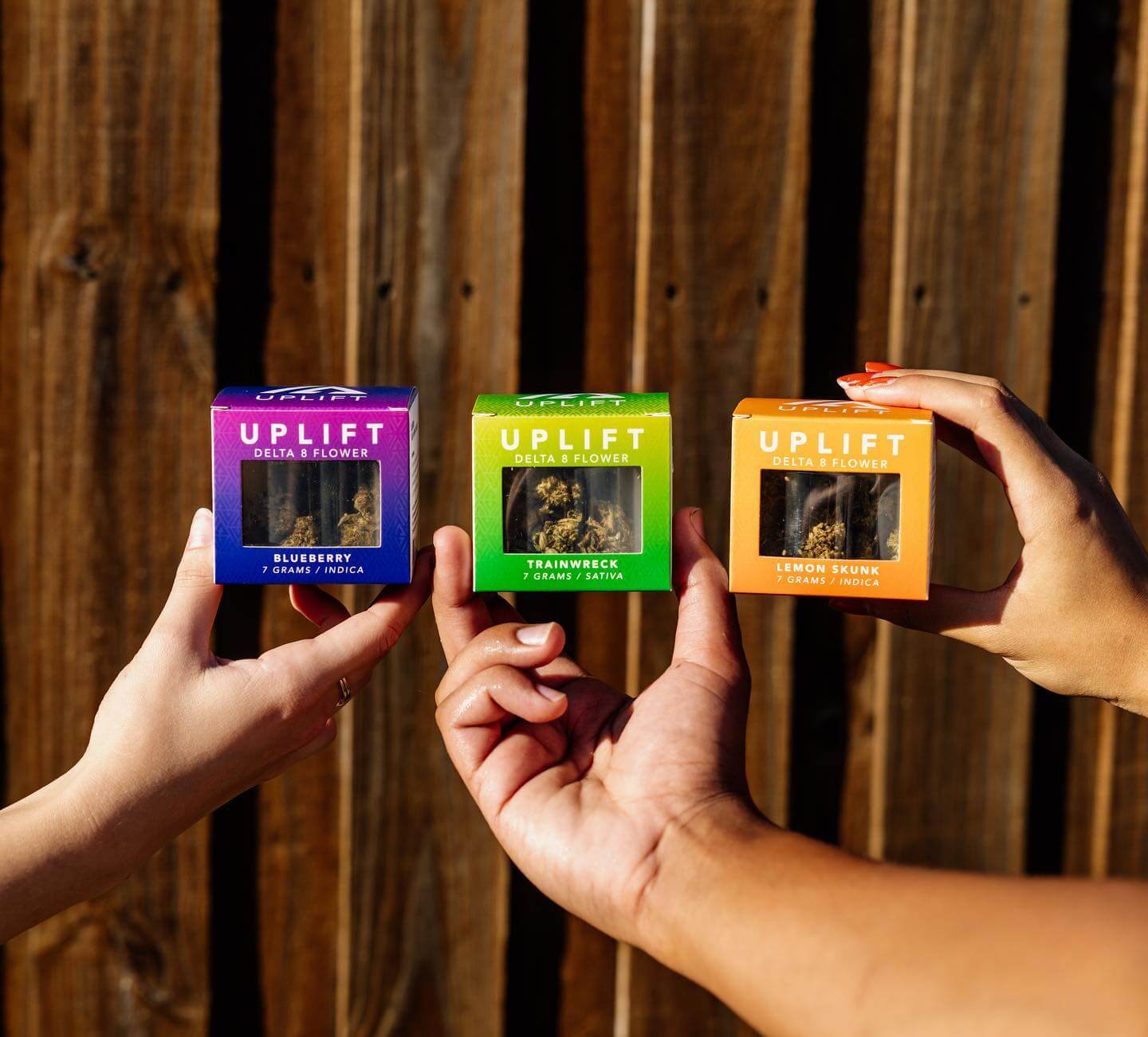How long does THCA stay in your system? The amount of THCA in your body depends on different things. This includes your body chemistry and how often you use it. It also matters if you heat the THCA (called decarboxylation) to turn it into THC.
You might be interested in the popularity of THCA or tetrahydrocannabinol products in the legal hemp market. THCA is a special cannabinoid that you can consume as it is. It stays as THCA, or you can change it into THC. This gives a legal way for many people to feel the effects of cannabis.
This article will explain how cannabinoids work, like how your body absorbs them, breaks them down, and how drug tests find them. We’ll also compare short-term and long-term cannabis use and see how it affects how long THCA and other cannabinoids stay in your body’s fat, even after any possible benefits are gone.
Overview of THCA & Cannabis Detection
- THCA can be found in urine drug tests about 1-2 weeks after use.
- Regular users might be detected for a longer time than occasional users.
- The detection period depends on the dosage, how it’s used, metabolism, and overall health.
- Standard drug tests mostly check for THC and its byproducts. False positives for THCA are rare.
- Heating the THCA compound (by smoking, vaping, or cooking) changes it into THC, which can result in a positive test.
Differences Between THCA and THC
You have two main options when it comes to consuming THCA:
- Consuming THCA in its raw form will not cause intoxication as long as the cannabinoid is not heated and has not undergone decarboxylation. Raw THCA is found in raw cannabis flowers, tinctures, and THCA gummies that are made from hemp buds.
- Heat is used to convert THCA into THC. Heat transforms THCA into THC by removing the carboxyl group. THC is its primary psychoactive cannabinoid.
The two methods of consumption create very different experiences with cannabis. They may also influence how cannabinoids in the body are absorbed and processed, which could affect their detection on drug tests.
GET YOURS HERE!

Does THCA Show Up on a Drug Test?
Raw cannabis consumption, such as THCA, is not usually tested because it is neither illegal nor psychoactive.
The body will then break down THC into THC metabolites, which will result in a positive THC screen.
Some drug tests can cross-react in rare cases, causing false positive results. Cannabinoid metabolites are often very similar.
Absorption & Metabolism of THCA in the Body
Cannabinoids are absorbed in three main ways:
- Oral Ingestion: When you eat THCA, like raw cannabis juice or THCA gummies, your body absorbs it through the intestines and stomach using digestive enzymes. After that, it goes into your bloodstream through the intestinal wall.
- Sublingual Absorption: This involves putting THCA tinctures under your tongue. The thin tissue and blood vessels under your tongue (sublingual squamous mucosa) let THCA absorb directly into your bloodstream. This way, it avoids digestion, giving a quicker effect and higher concentration than eating it.
- Inhalation: When you inhale, like by smoking THCA flower or Pre-rolls, THCA turns into THC. The lungs have lots of blood vessels, making it easy for THC to get into your bloodstream efficiently.
Once THCA is in the body, it mainly works with the endocannabinoid systems to have its effects.
The effects of cannabinoids can last from two to eight hours, depending on how much you consume and how your body breaks it down. After the effects are gone, your body starts getting rid of the substance.
Cannabis metabolites are what’s left when your body processes and changes substances to help eliminate them. Liver enzymes and other tissues break down cannabinoids into different compounds during this process.
The active parts of cannabis, like THC and THCA, go through metabolic processes that create metabolites. These inactive metabolites gather in fatty tissue and slowly come out in urine.
In drug tests, these metabolites are what they find to see if you’ve used cannabis.
How Long Does THCA Stay In Your System?
The length of time that THCA or other cannabinoids stay in your body can be affected by several factors.
- Metabolic rate of an individual
- Frequency of Use
- Dosage
- Consumption Method
It’s not certain how long it takes for THCA (the chemical in cannabis) to leave your body.
THCA isn’t psychoactive or illegal. It’s a cannabinoid that hasn’t been studied as much as THC and CBD. Because of this, we don’t have clear information on how long it stays in the body.
The most common drug tests, which check for drug abuse using urine, don’t look for THCA. So, if you’ve had raw cannabis with a lot of THCA, you should be fine.
These tests are mainly made to find THC and its byproducts, like THC COOH, which show if someone used cannabis.
But if you smoke THCA concentrates, vapes, or prerolls, it’s different. Heating THCA turns it into THC, and the tests can find THC and its byproducts in blood, urine, and saliva.
How Long Is the THC Metabolite Detected?
Some drug screens can detect THC for up to two months, while more sensitive tests can detect trace compounds for as long as six months.
According to a review of clinical cannabis users, the amount of THC in their body is dependent on how often they use it
- Once: 3 – 5 days
- Moderate User (four times per week): 5 – 7 days
- Chronic Users (daily): 10 – 15 days
- Heavy users who use the product daily (multiple times): for more than 30 days
Keep in mind that things like how fast your body processes food (metabolism), how much you drink (hydration), and the way they test can change how long THC byproducts can be found.
If you’re thinking of using smokable THCA products from hemp, it’s important to reconsider. Even though THCA may not give you the quick effects of THC, heating it turns it into THC.
It’s crucial to put your work and personal responsibilities first. Make smart choices about substance use, especially when you might get tested for drugs at work or by the law.
Different Types of Drug Tests and Their Sensitivity to THCA
Different types of drug tests are sensitive to different substances including THCA.
Here are some common methods of drug testing and their general sensitivity for THCA.
1. Urine Test
- The most common drug testing method is urine drug tests. It’s inexpensive, non-invasive, and relatively accurate.
- The standard urine test is designed to detect THC-COOH (the metabolite THC) rather than THCA.
- THCA does not dominate urine drug testing, but it is a good way to detect THC metabolites.
2. Blood Test
- Blood tests may be used for DUI investigations, but are not as common as routine drug testing.
- Blood tests are more likely than urine tests to detect recent cannabis usage.
- Blood tests are similar to urine tests in that they focus primarily on THC and its metabolites, rather than THCA.
3. Saliva Test
- Due to their ease of use and non-invasive nature, saliva tests are increasingly popular.
- These tests are used to detect recent drug usage. Their sensitivity to THCA is similar to blood tests.
- The detection window of THC and its metabolic products in saliva is usually short. It can be as little as a day to several days after the use.
4. Hair Testing
- Hair tests may be less common, but they can provide a wider detection window.
- Also, hair tests can detect THC, its metabolites, and THCA in hair samples.
- Hair tests may be sensitive to THCA, but their accuracy is not known. Further research will need to be done to confirm that they are accurate in detecting THCA usage.
How Quickly Can You Detoxify THC to Pass a Drug Test?
If you’re worried about using marijuana or accidentally consuming carboxylated THCA, you might have looked into herbal supplements to quickly detoxify THC and other drugs.
Be careful with these claims.
The only sure way to get rid of THC-COOH is to stop using drugs and wait.
Your body can clear THC byproducts in a few days or up to four weeks.
Some ideas, like drinking a lot of water, exercising, or using detox products, say they can help clean out your system, but there isn’t much scientific proof they work for passing drug tests.
These methods might help some people, but they don’t guarantee passing a drug test.
If you’re worried about THC byproducts, it’s best to talk to a doctor or an expert who can give you accurate advice based on your situation.

Recap – How Long Does Thca Stay In Your System?
Since there’s not much research on removing THCA, we don’t know exactly how long it stays in the bodies of people who use marijuana a lot. But, we can guess based on what we know about other cannabinoids like THC and CBD.
Usually, drug tests don’t look for THCA. They focus more on THC and its byproducts. How long THC stays in your body depends on things like how often you use, how much you use, your body’s metabolism, and the type of test they do.
After using cannabis, it takes several days to a few weeks for THC and its byproducts to show up in body fluids.
If you’re worried about drug tests, it’s a good idea to stop using any cannabis products, including ones with THCA, for a while before the test.
For the best advice, you can talk to experts or healthcare professionals. They can help you figure out what’s best for your situation.
Frequently Asked Questions on THCA Detection Window
How Long Can THCA Remain Detectable in Urine Drug Tests?
The time THCA stays detectable can change based on how much and how often you use it. THCA can usually be found in urine for about 1-2 days after using it. It’s important to know that urine tests mainly look for THC and its byproducts, not THCA.
Now, let’s talk about whether there’s a difference in how long THCA is detectable for occasional users compared to regular users.
Regular users might be detectable for a longer time than occasional users. If you use THCA often, it can build up in your body over time, making it detectable for a longer period. On the other hand, occasional users might have a shorter detection window because they use it less often and have lower levels in their bodies.
What Factors Can Affect the Time THCA Is Detectable?
The time THCA stays detectable in the body depends on different things. These factors include how much and how strong the THCA is, how it’s used (like smoking, vaping, or eating), your metabolism, weight, how hydrated you are, and your overall health. The kind of drug test used can also affect how long THCA is detectable.
Now, let’s talk about whether drug tests specifically look for THCA or focus more on THC and its byproducts.
Regular drug tests usually don’t look for THCA. They mainly target THC and its derivatives, like THC COOH, to check for cannabis use. Since THCA, which is a non-psychoactive form of THC, isn’t the main focus of most drug tests, it usually doesn’t show up.
Do You Have Any Examples of False Positives for THCA in Drug Tests?
It’s uncommon, but sometimes drug tests can show a false positive for THCA. This can happen for different reasons, like mistakes in the testing process or reactions with other substances. Usually, if a drug test says there’s THCA, they do another test to double-check and make sure it’s accurate. This second test helps avoid mistakes and gives the right results.
Shop Now for a Balanced and Calm Lifestyle!
At Uplift CBD, we want to give you the info and tools to make smart decisions about your health. We support using cannabis responsibly. Our goal is to offer top-notch CBD products that help your body stay in balance.
If you’re looking for a natural way to take care of yourself, check out Uplift CBD‘s high-quality products. They’re made to boost your overall wellness, easing stress and promoting relaxation.
Visit our website to learn about the benefits of CBD. Start living a healthier, more balanced life with Uplift CBD.
GET YOURS HERE!


